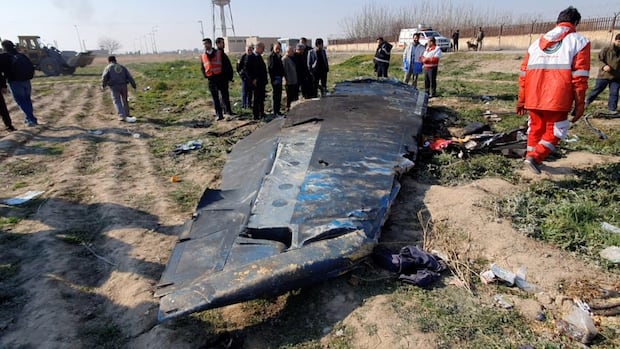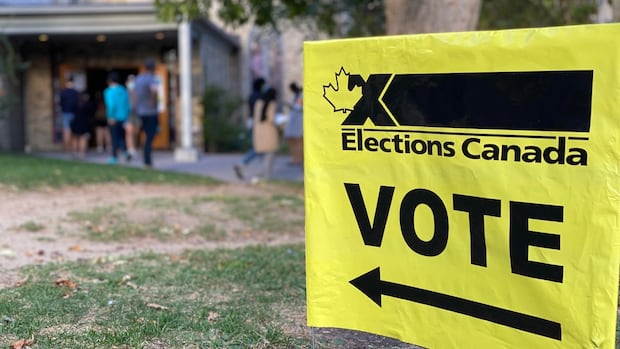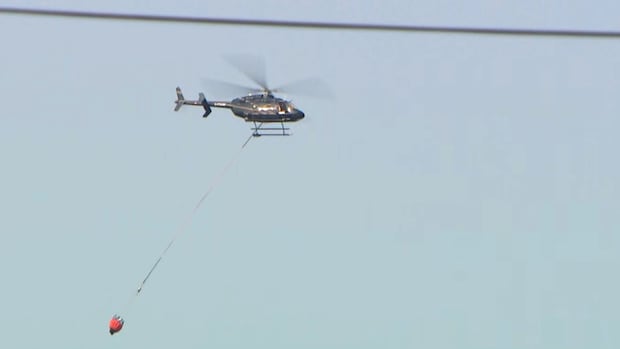Rick Chorley recognized the signs that something was off: intrusive thoughts, mood swings, recurring dreams and frequent disturbed sleep.
At the time, he had logged almost 40 years as a paramedic, most of which were spent in the Alberta Health Services (AHS) Edmonton Zone.
He filed a claim to get support through workers’ compensation. Chorley did not take time off work, but was connected to a therapist.
“One of the things that came up in our conversation was that I had 40 years to unpack,” said Chorley, who is now semi-retired, still working casually as an advanced care paramedic.
“I have lots of calls from rural [service] that I’ve been carrying around and lots of calls from the city that I’ve been carrying around.”
First responders, like Chorley, face trauma and physical dangers in their jobs, as well as other stressors like high workloads, finite resources and shift work.
Combined, those stressors amount to a psychological price.
A large body of research shows that first responders develop post-traumatic stress disorder (PTSD) at a higher rate than the general public. But data obtained by CBC News shows that, since 2019, more than 1,130 Edmonton firefighters, paramedics and Edmonton Police Service (EPS) members have had to step away from duty due to psychological injuries, spending months on workers’ compensation on average each year.
“Public safety personnel are exposed to significantly [more] potentially traumatic events on a daily basis, without a lot of reprieve from it,” said Kimberly Bitz, knowledge mobilization lead for the Canadian Institute for Public Safety Research and Treatment (CIPSRT), based out of the University of Regina.
“We have a greater appreciation for the fact that these things do compound … People are starting to see now that we should be treating mental health exactly as we do physical health — and those [workers’ compensation] claims are equally warranted around that.”
Stepping back
Curtis Hoople, president of the Edmonton Police Association, breaks down while remembering the 2023 deaths of two Edmonton police constables, Brett Ryan, 30, and Travis Jordan, 35.
The officers were fatally shot while responding to a family dispute at an apartment building in northwest Edmonton. Police said the shooter, a 16-year-old boy, killed himself after killing the officers.
Hoople recalled how the city briefly recognized the potential harms that come with the line of duty.

“When it’s all done, and people have moved on back with their lives, and then we get criticism, they forget that moment in time when they understood,” said Hoople, who has had a decades-long policing career, but isn’t on the front lines while working with the union.
“We don’t forget. It doesn’t leave us.”
First responders are trained for and called to a wide range of scenarios during a shift, from helping people complaining about pain, to overdoses, intense fires, vehicle collisions, river rescues and shootings — among many others. Sometimes they may have a moment to decompress from what they experienced before rushing to the next call.
“We don’t have time to use the bathroom anymore,” said Mike Parker, president of the Health Sciences Association of Alberta, the union representing paramedics, among other health professionals.
“The next call is coming in and they’re back out the door, with all of that emotional impact and baggage in their head, walking right into the next critical event.”
First responders in Alberta have presumptive workers’ compensation coverage for PTSD diagnoses for injuries since Dec. 10, 2012, and psychological injuries suffered since April 1, 2018, from traumatic work incidents. Workers’ Compensation Board-Alberta (WCB-Alberta) may also approve claims if someone can prove that stressors such as repeated harassment or discrimination, for example, have caused psychological injury.
CBC News obtained annual data from the City of Edmonton, EPS and AHS, showing the number of psychological injury claims approved by Workers’ Compensation Board-Alberta (WCB-Alberta) for firefighters, EMS in the Edmonton Zone, and EPS members since 2019. Those agencies also released the combined time off work that resulted from those claims.
The data didn’t show a universal trend, but patterns emerged for each agency.
Approved claims for EPS members quadrupled from 36 in 2019 to 148 in 2023, before plateauing at 145 last year. The total time off work, however, is almost nine times higher than in 2019, data shows.
EPS claims could come from sworn officers and civilian members, such as emergency communications officers who handle 911 calls.
Claims for paramedics, meanwhile, jumped during the COVID-19 pandemic, peaking at 121 in fiscal 2021, before continuously declining through most of fiscal 2024, data shows. An AHS spokesperson said the stats may fluctuate due to delayed diagnoses, reporting timelines and the ongoing resolution of open claims.
They attributed the decline, in part, to the agency’s EMS employee programs portfolio, a suite of mental health supports and training that launched in 2021. Parker, from the HSAA, is skeptical of the drop, however, because it doesn’t align with what the union hears from the front lines.
Firefighters, meanwhile, have typically had more claims approved each year, doubling from 13 in 2019 to 26 in 2023, before dipping slightly last year. But their time off has fluctuated, peaking in 2021.
Data shows firefighters usually accounted for the fewest claims each year, but on average, they spent more time off work than EPS members and paramedics, respectively.
Megan Rogers, deputy chief of administration for Edmonton Fire Rescue Services, described the firefighters’ claims data as bittersweet.
Exposure to trauma comes with being a firefighter, but the figures, ultimately, signal that more people are reporting their mental health injuries and trying to get the help they need, Rogers said in a statement sent through the agency’s public information officer.
Officials from other agencies expressed similar sentiments.
“It’s more accepted for them to express that vulnerability and express what they’re dealing with and talk to one another,” said Bitz, from CIPSRT.
On the front lines, some first responders, like Chorley, the Edmonton paramedic, will check in with their partners after critical calls to see how they felt the response went.
“When things go well, it’s less of a traumatic event,” Chorley said. “When things go sideways… it becomes stressful for everybody.”
AHS, EPS and Edmonton Fire Rescue Services (EFRS) have implemented a range of resources for their employees, such as Employee and Family Assistance programs, peer support networks and resiliency training, which helps people prepare for what they might see on the job. They also have reintegration programs in place to help people return to work if they have had to take time off.

EPS also introduced Blaise, an operational stress intervention dog, to its team this spring. According to Donna Munro, its director of employee and organizational wellness, no other law enforcement agency in Alberta has a PTSD support service dog like him.
It took years to get him, Munro told CBC News in June, but “I know for a fact that it’s helping our members.”
The Alberta government, for its part, also created the Supporting Psychological Health in First Responders grant program to fund services and research for first responders and “emergency workers” living with — or at risk of developing — PTSD.
At CIPSRT, Bitz analyzes research and develops ways for people and organizations to apply it. She said public safety agencies are hungry for resources.
“They’re eating it up,” she said. “They’re asking for more; they’re telling us what they need.”
Some first responders have even started grassroots efforts to help their peers.
Helping peers
Jerry Galliford, a corrections officer turned Alberta Sheriff, launched a Facebook group in February 2023 where first responders could vent and share information about mental health and different resources. That community quickly grew and spawned the Alberta First Responders Association, a non-profit dedicated to mental health and suicide prevention.
In June, the association launched a public online program called 1st Health, offering 10 modules that aim to help with first responders’ mental health. The topics range from understanding stress and trauma, to better sleep, to navigating organizational supports.
The platform stemmed from notes collected in the association’s first symposium earlier this year, said Brian Ho, its director of growth and impact. The goal is to make first responders pause, check in with themselves and develop a plan that works for them.
“The minute you start proactively changing things, you feel like you have more control over a situation,” Ho said.

Day to day, first responders will see and hear about a lot of hard situations, some of which show the worst of humanity, said Galliford, the association’s president. But when it came to seeking help, the association noticed a theme: many first responders are so used to helping others, they ignore their own needs.
“To look inward is the hardest thing that anybody can do, because you don’t feel like you deserve to go out of your way to help yourself when you have all this time to help other people,” said Galliford, who sought mental health care while he was in corrections after a series of overdoses and assaults at his facility.
“It’s really difficult to make that switch.”
Acknowledge the signs
Chorley has no regrets when reflecting on his decades-long career as a paramedic. He acknowledged the job has its cons, but ultimately, he said it has been one of the most positive experiences of his life.
“It was where I needed to be,” he said.

He has seen a lot change during his career, including watching stigma about mental health — at least within EMS — dissolve. Students are also getting resiliency training before they enter the field, he said.
But Chorley encouraged first responders to be mindful and check in with themselves and their coworkers — and to seek help, if they recognize something is wrong. He said newer responders, in particular, should find a trauma-informed therapist, even if they only speak with them occasionally when stressed.
“When that time comes, you have a therapist you can go to. Somebody you built a rapport with, somebody you trust when you go in to talk to them, and you don’t have to start from Square 1 because they know you,” he said.
Chorley also suggested people find ways to ground themselves outside of work. For him, those hobbies are woodworking and riding the black Honda motorcycle parked in his garage.







